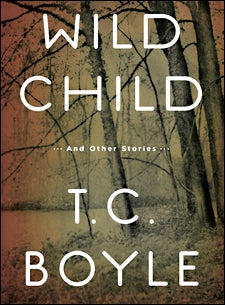WHAT WOULD IT MEAN to live outside the constraints of society? That’s the question running through new story collections by Jim Harrison and T.C. Boyle, two modern virtuosos of short fiction. Harrison’s take on the wild life is the less surprising of the two. The author is a well-known gourmand, an avid admirer of the fairer sex, and a proud hunter and angler. In his fiction, those appetites swell to almost cartoonish proportions; his characters hunt, eat, drink, and screw┬Śthen eat, drink, and screw some more. (Grove Press, $24) continues Harrison’s run of masterful novellas that began with Legends of the Fall. In the title story, a tough, smart, homeschooled girl grows up lonely in small-town Montana, where she finds solace in Emily Dickinson, antelope hunting, and seeking revenge against a man who abused her. The gem of the collection, though, is “The Games of Night,” which chronicles the lifestyle challenges of a modern-day werewolf. Having been bitten by a wolf cub as a child, the protagonist goes into a carnivorous and sexual frenzy during every full moon. He manages his lycanthropy by mauling oysters and steaks and releasing his primal urges with “the big tavern tarts of the North,” in towns like Superior, Wisconsin. This is Harrison’s alter ego gone berserk, running and rutting and eating “mountainous amounts” of meat such as muskrat fried in pork fat. It’s tremendous fun, with just enough banal detail: All that meat eating, for instance, gives our hero gout.
Farmer's Daughter Grove Atlantic
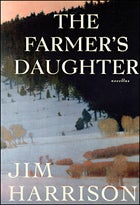
Wild Child Viking Penguin
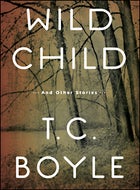
Whereas Harrison explores the sensual possibilities of wildness, Boyle goes for a more intellectual approach. The title character in his new collection, (Viking, $26), is based on a historical figure, a boy found living in a French forest in 1797. Boyle gets into the head of both the child and Jean-Marc Gaspard Itard, the doctor determined to bring the feral boy┬Śwhom Itard names Victor┬Śinto civilization’s fold. Boyle is brilliant seeing through Victor’s eyes. Here are the boy’s thoughts upon being captured: “Animals, bigger and more powerful than he, had taken him for their pleasure, for their prey, and he had no expectation but fear because he had no word for death and no way to conceptualize it.” Victor’s hearing is selective: The boy registers only those sounds connected with food or danger. Human speech, Boyle writes, “was a kind of background music, no different from the incomprehensible twitter of the birds of the forest.” There’s no Miracle Worker ending here, despite Itard’s best efforts: The boy learns a rudimentary language, but he’ll be writing no operas anytime soon. After reading Harrison’s raucous celebration of man’s inner wolf, Boyle’s sober treatment reminds us that there’s a reason we left the forest.
Books: Sam Shepard
Shepard Jacket Knopf
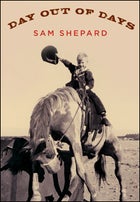
“I cut his face off meticulously. That’s all I have to say. Just doing my job. They told me they wanted the face as proof of the pudding. Trouble is it’s not the same as skinning a walleye or a yearling buck.” —From “Pity the Poor Mercenary,” one of the odd, stark stories about the American West in Sam Shepard’s new collection, (Knopf, $25)
Books: Eric Blehm
Eric Blehm HarperCollins
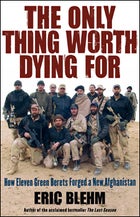
Eric Blehm’s third book, (Harper, $26), details the U.S. Army’s campaign to take the Taliban stronghold of Kandahar. Blehm reconstructs the narrative of the men of ODA 574, who in 2001 infiltrated southern Afghanistan with a then-unknown guerrilla leader named Hamid Karzai. “God, this is awesome,” thinks a young sergeant. “We’re live and we’ve got ammo and anything can happen.” Does it ever: Blehm’s heroes, along with 300-odd Afghan fighters, rout the Taliban and befriend the locals. Then the Army’s bureaucracy commits a horrific error that destroys the team and almost kills Karzai. Blehm avoids adding to the recent flood of armchair political analysis but uncovers something more true: a parable of the war in the story of one unit.



